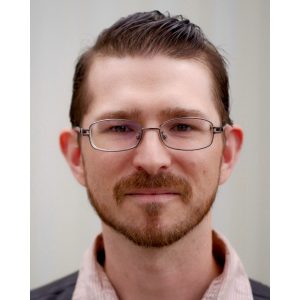
Mojo Tchudi is currently a practicing psychotherapist, blending Buddhist philosophy and psychotherapy to support his clients.
What are you currently up to?
After graduating from DRBU, I pursued another Master’s in Clinical Mental Health Counseling at Saybrook University. Now I’m in practice as a counselor working with adults, adolescents, and couples. I work with people in person in Santa Rosa and via telehealth throughout California. People approach me because they want to work on depression or anxiety, develop coping skills, or improve communication with loved ones and colleagues. I emphasize spiritual integration in my counseling work, incorporating religious beliefs and meditative experiences into the counseling process. I also offer ketamine-assisted psychotherapy, a technique that induces a meditative, non-ordinary state of consciousness to facilitate rapid insight. People can learn more about my practice here. 
Therapy is an intimate relationship, so it’s important to my clients that I show up authentically and sincerely, showing genuine interest and care for them. Rather than applying a quick fix or cognitive reframe, I pursue a deeper healing that comes from developing insight, increasing tolerance for distressing situations and feelings, and increasing trust that we have the resilience to face future hardships.
How have you applied what you learned at DRBU to what you are currently doing?
I am openly a “Buddhist psychotherapist,” so clients approach me because they want a spiritual and philosophical approach to mental health. I don’t make a distinction between mental and spiritual health. Developing contentment isn’t just about treating mental illness; it’s about discovering deeper meaning that allows us to endure inevitable discomfort and suffering. The two-arrow metaphor from Buddhism guides my practice: we have no control over the pain of getting shot with an arrow, but we can choose to not stab ourselves with a second arrow by fretting; in other words, we can’t decide what happens to us, but we can decide how to respond. The process, then, is to learn to accept pain that is outside our control while developing the capacity to not induce our own suffering. I also lean on Stoic philosophy: the most important thing is to learn what is and is not under our control, then devote ourselves fully to areas we have agency for change and ignore completely things that are beyond our control. These are the core questions common to humanistic, existential, and Buddhist psychotherapy.
What is a favorite pastime/memory from your time at DRBU?
Studying Sanskrit was a challenge, and I spent more grueling time with my language practice than all my other academic pursuits at DRBU. Ultimately, I wasn’t very good at it, but it was thrilling to push myself to learn something previously inconceivable and begin to scratch the surface of exploring texts in Sanskrit. It was difficult and frustrating, but I look back on that as a special time in my life that I could go deep into a profound and magical subject.
Insights, advice, and/or words of wisdom you’d like to share with new/current students:
DRBU offers a brief window to dive fully into a philosophical life—you might not get this chance again after you graduate. The world continually places demands on your time and attention, and DRBU gives you an opportunity to put those demands on pause and go inward to reflect. The texts and your writing—and, of course, the contemplative immersions—are tools for inner exploration, so focus on the things that are meaningful to you. Buddhism and the other traditions studied at DRBU are too vast to grasp with even a lifetime of study—thousands of years and generations of philosophers have built these monuments of literature—so rather than trying to figure everything out, instead find the gems that sparkle the most brightly to you and use them to study yourself. The tools of transformation you develop during your time at DRBU are preparing you for the rest of your life.